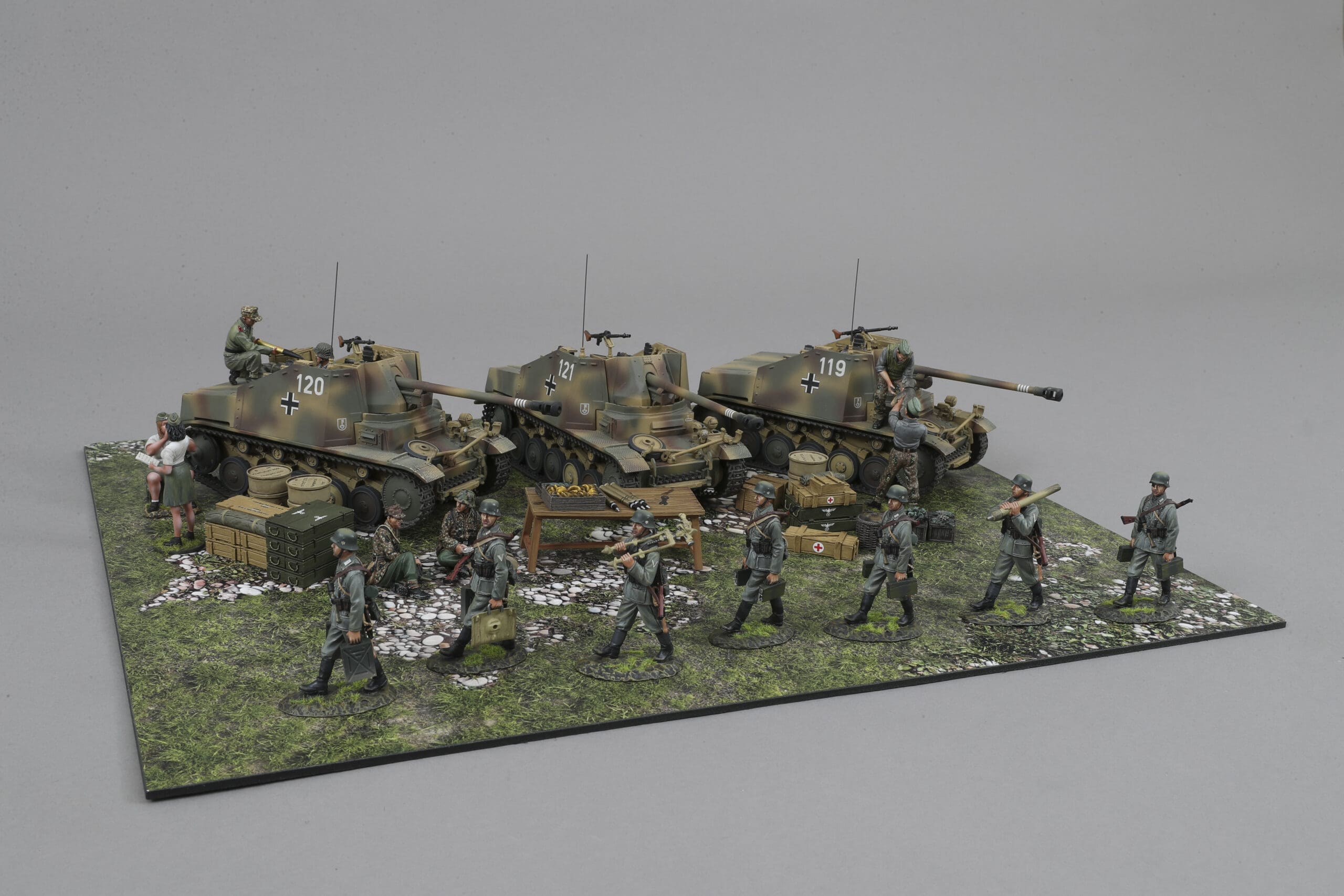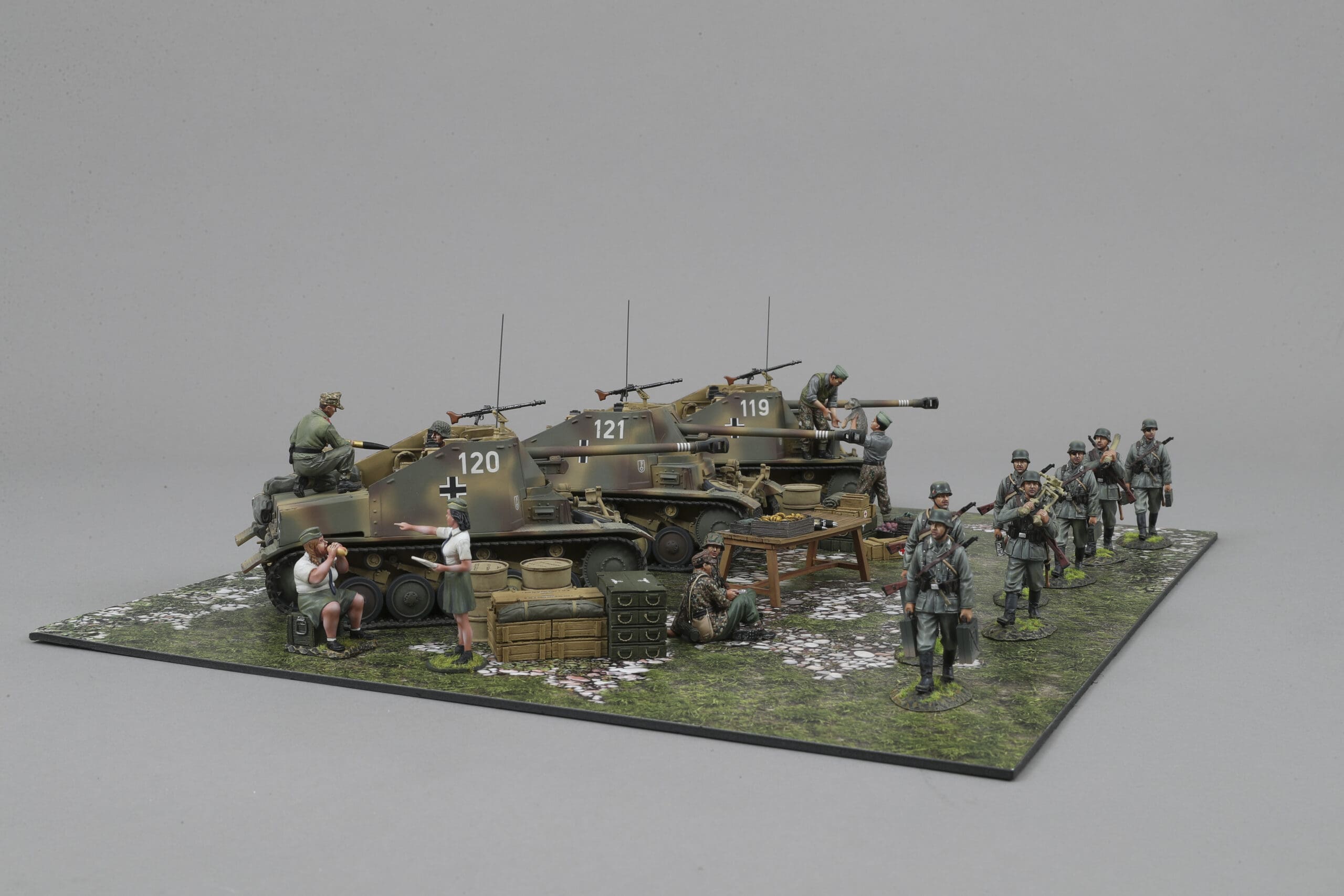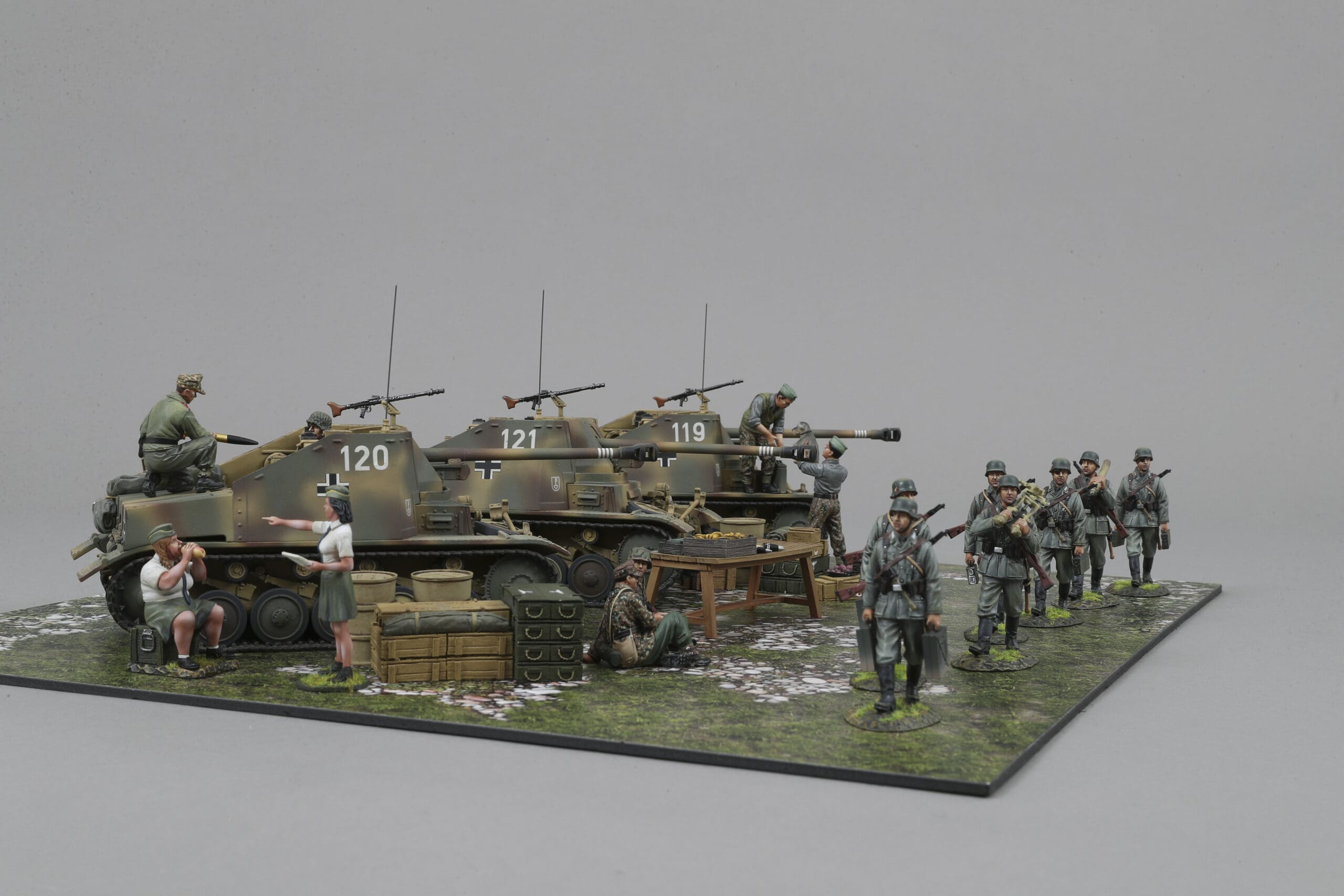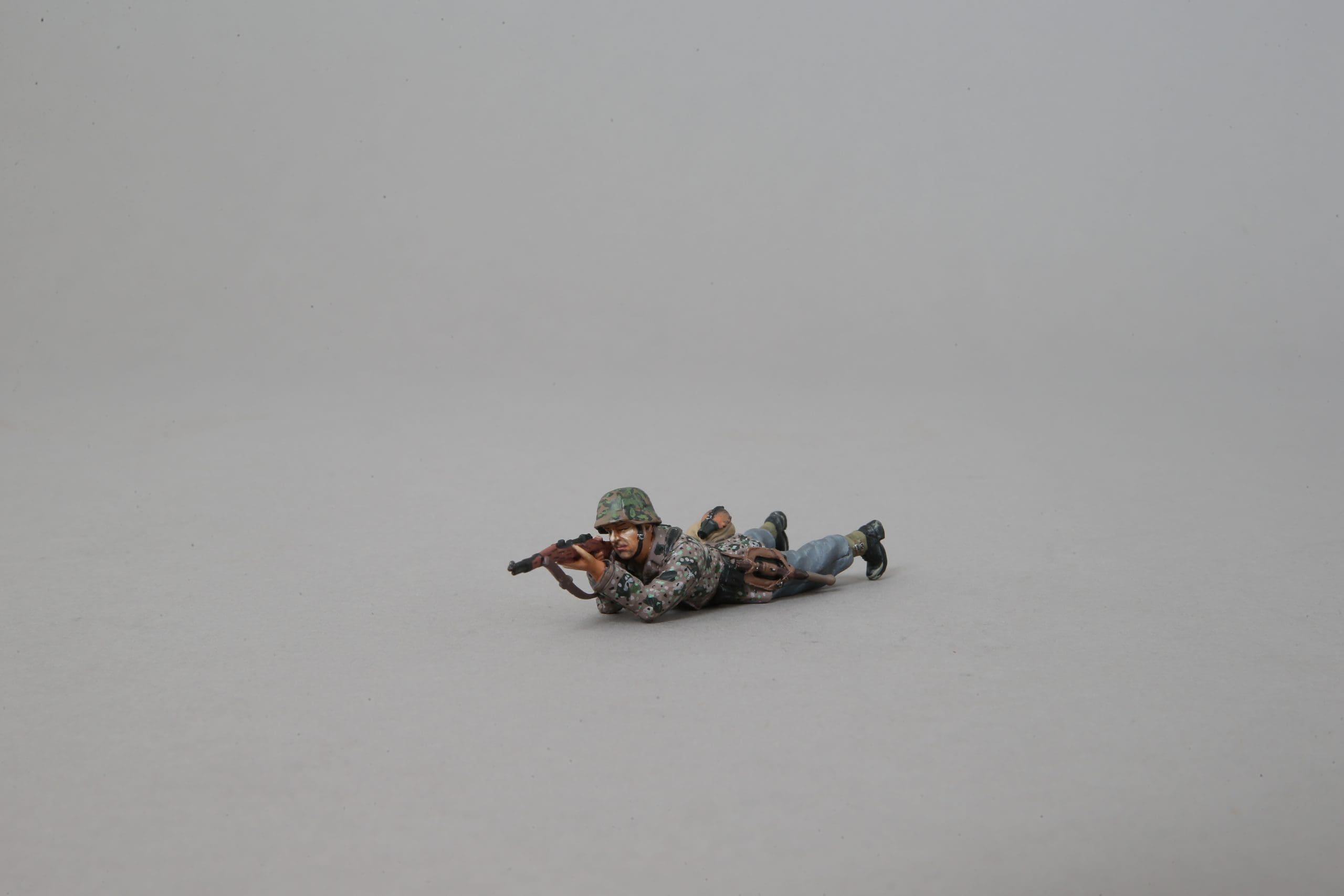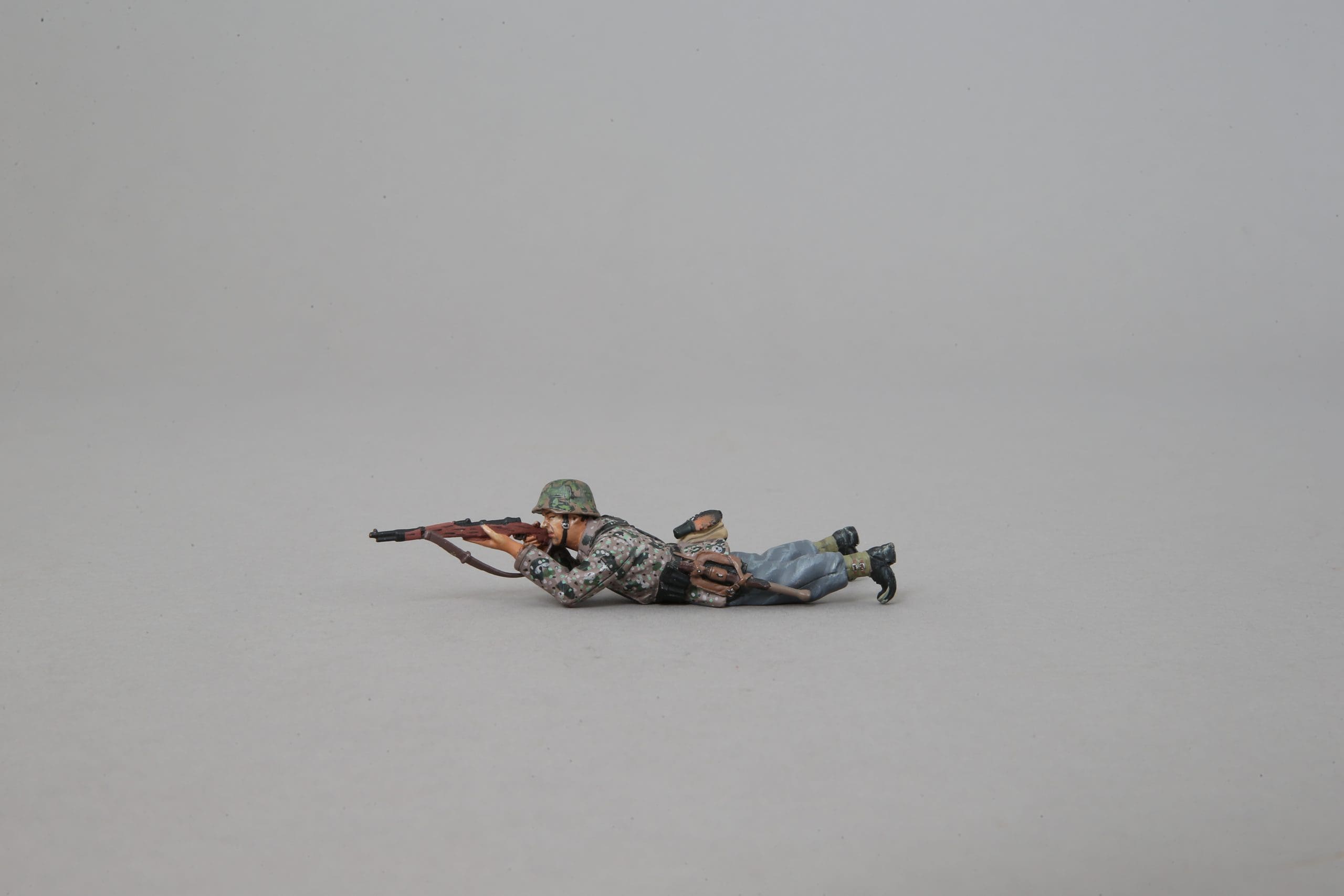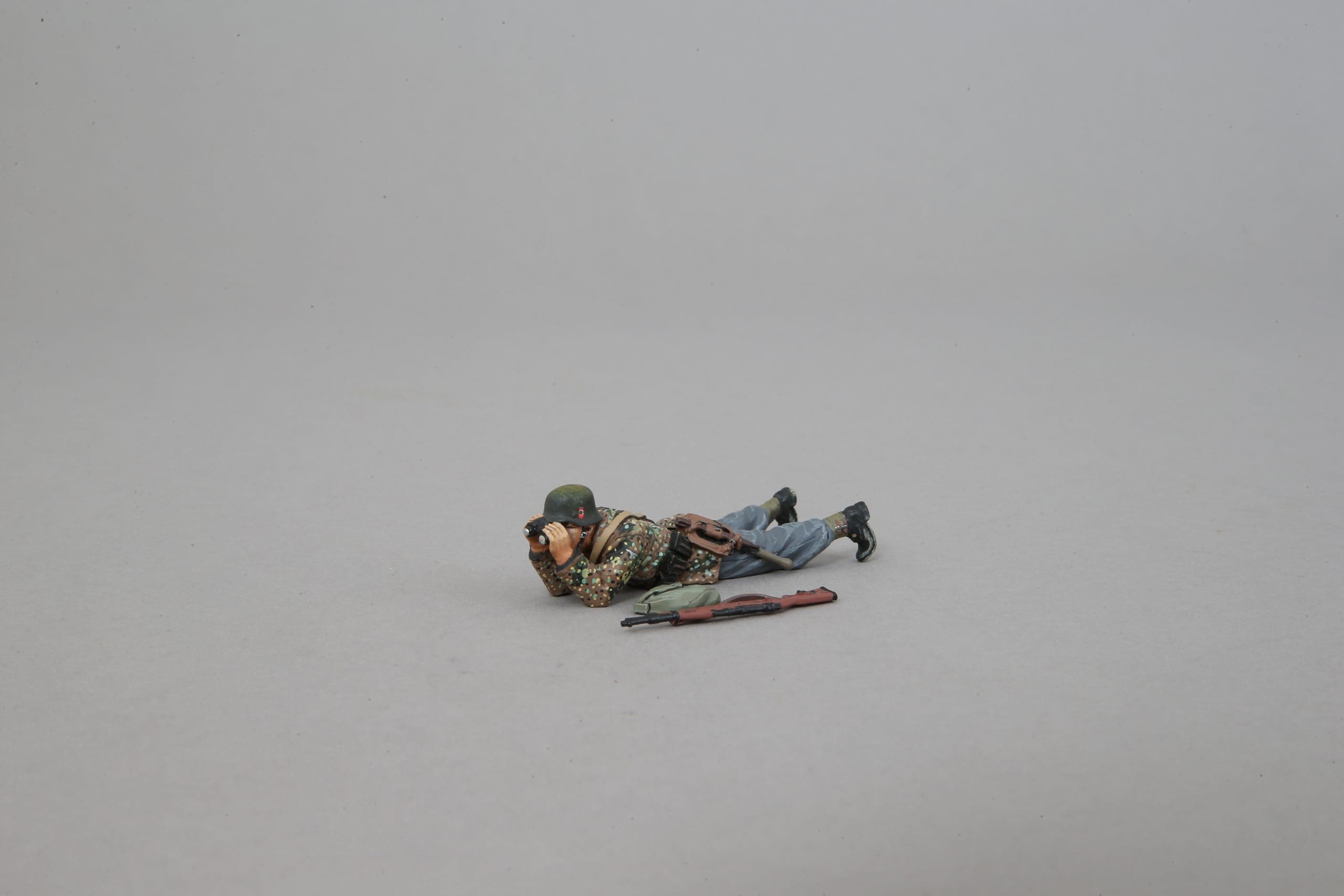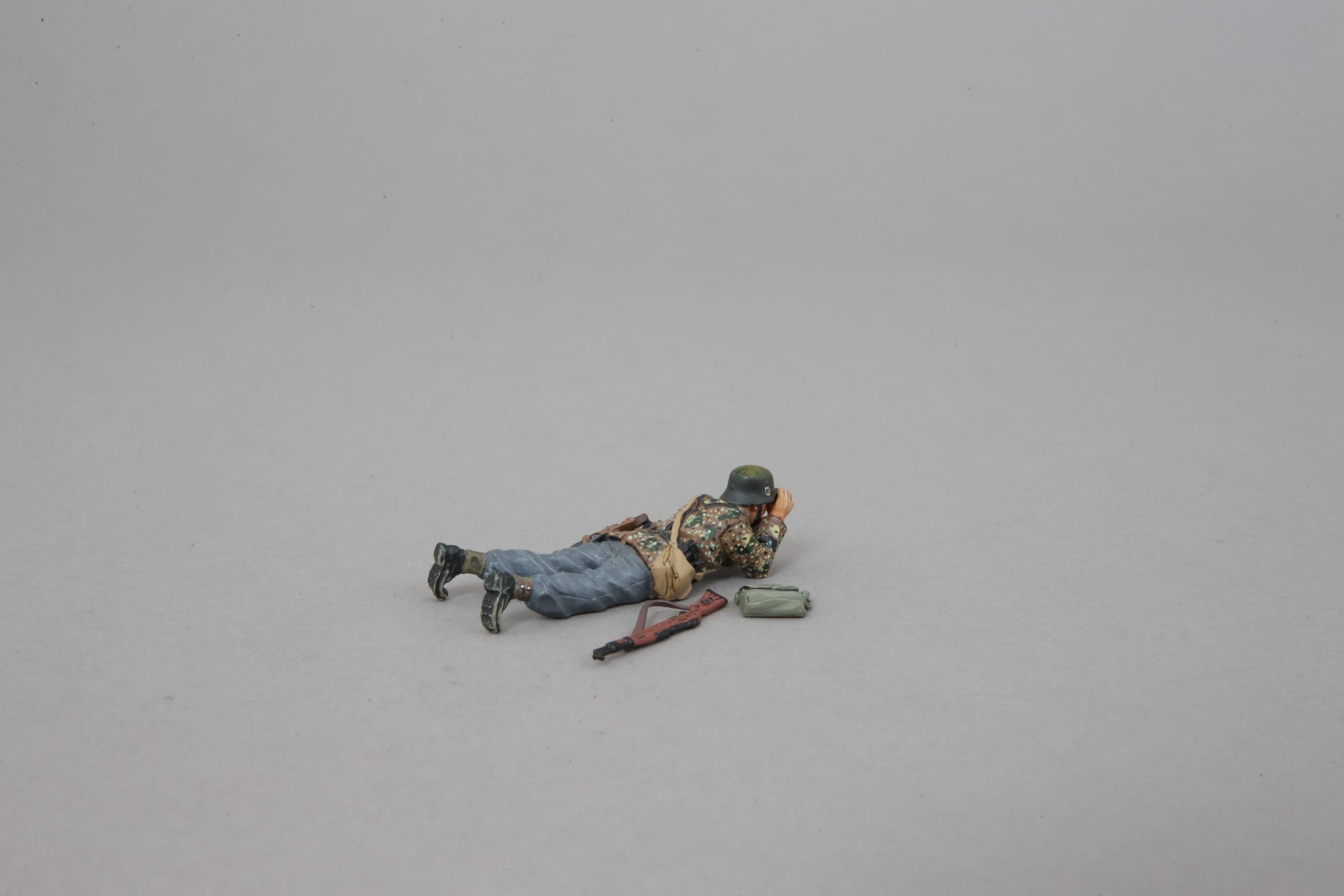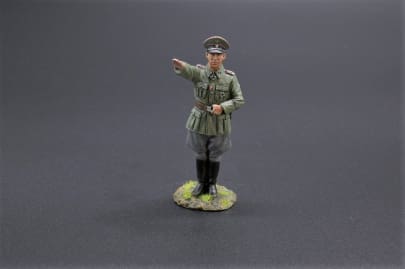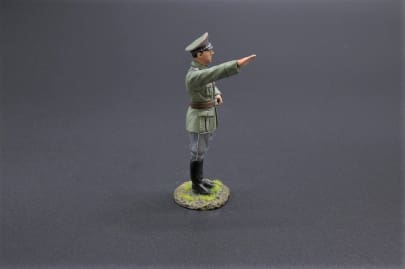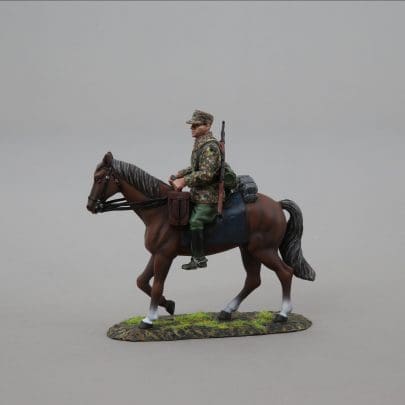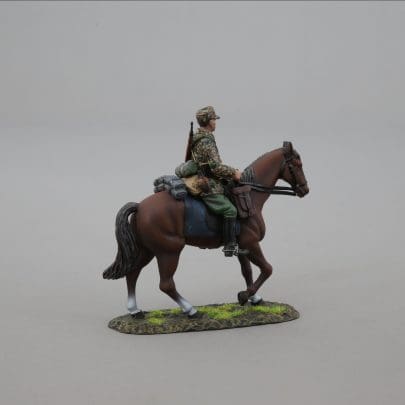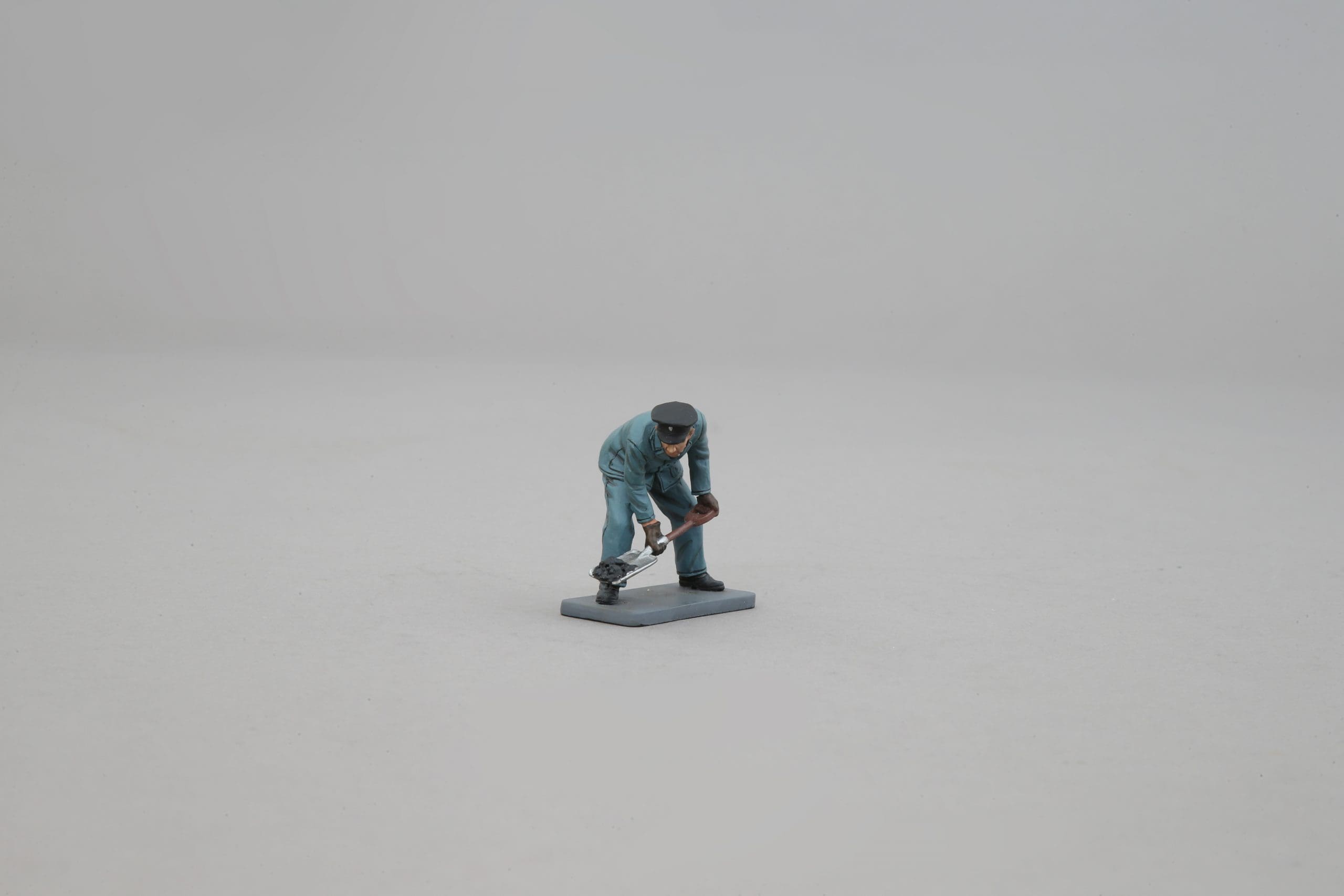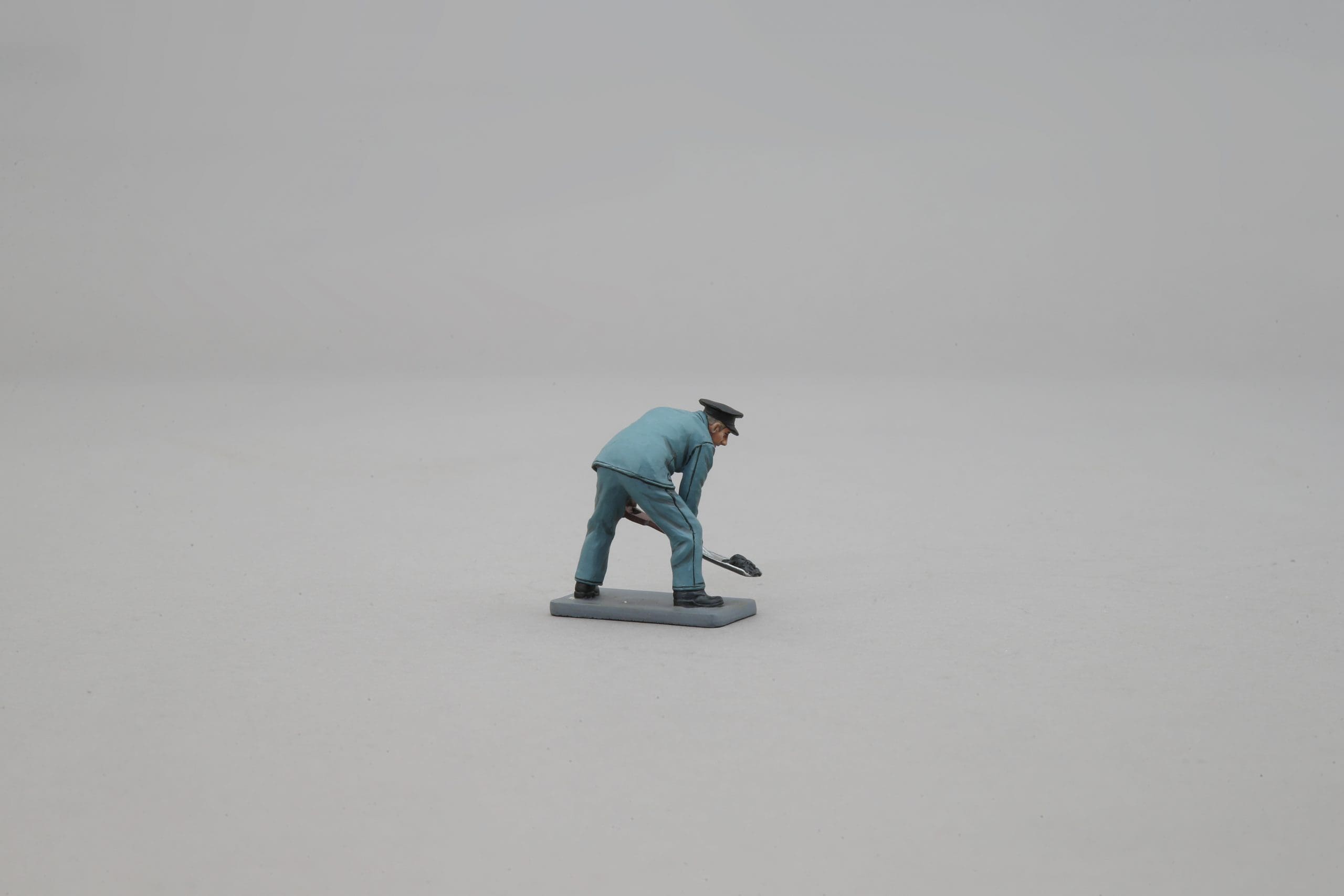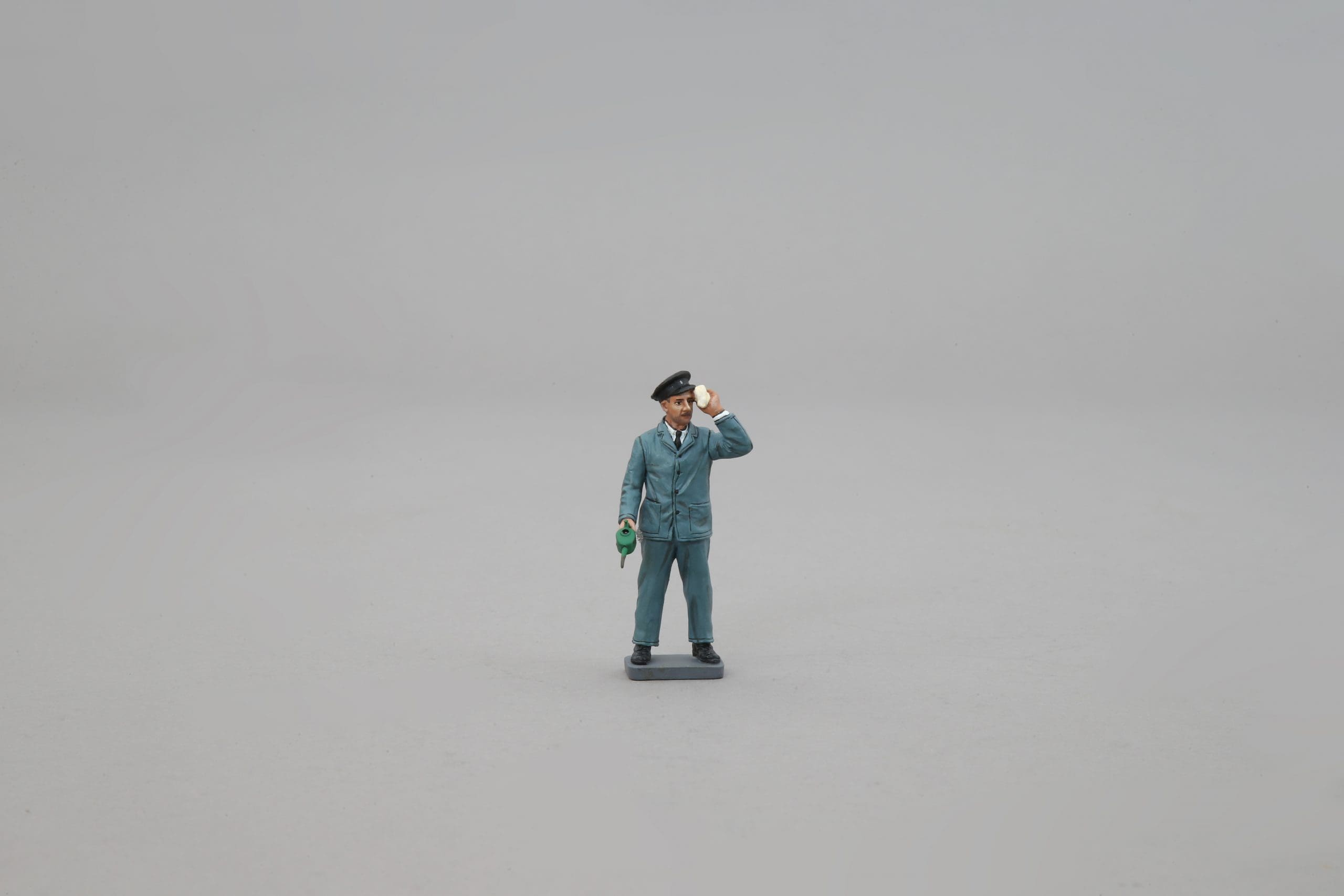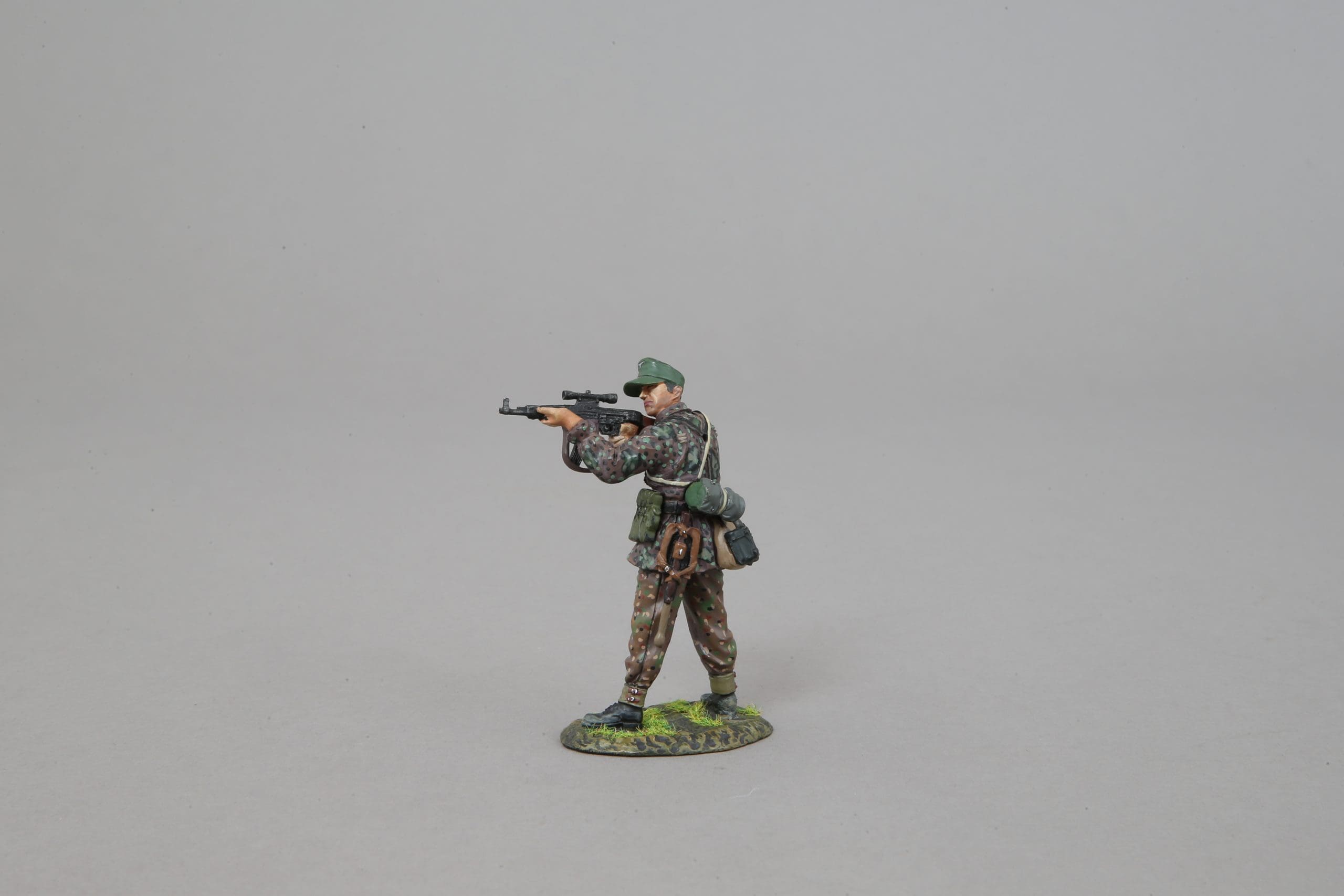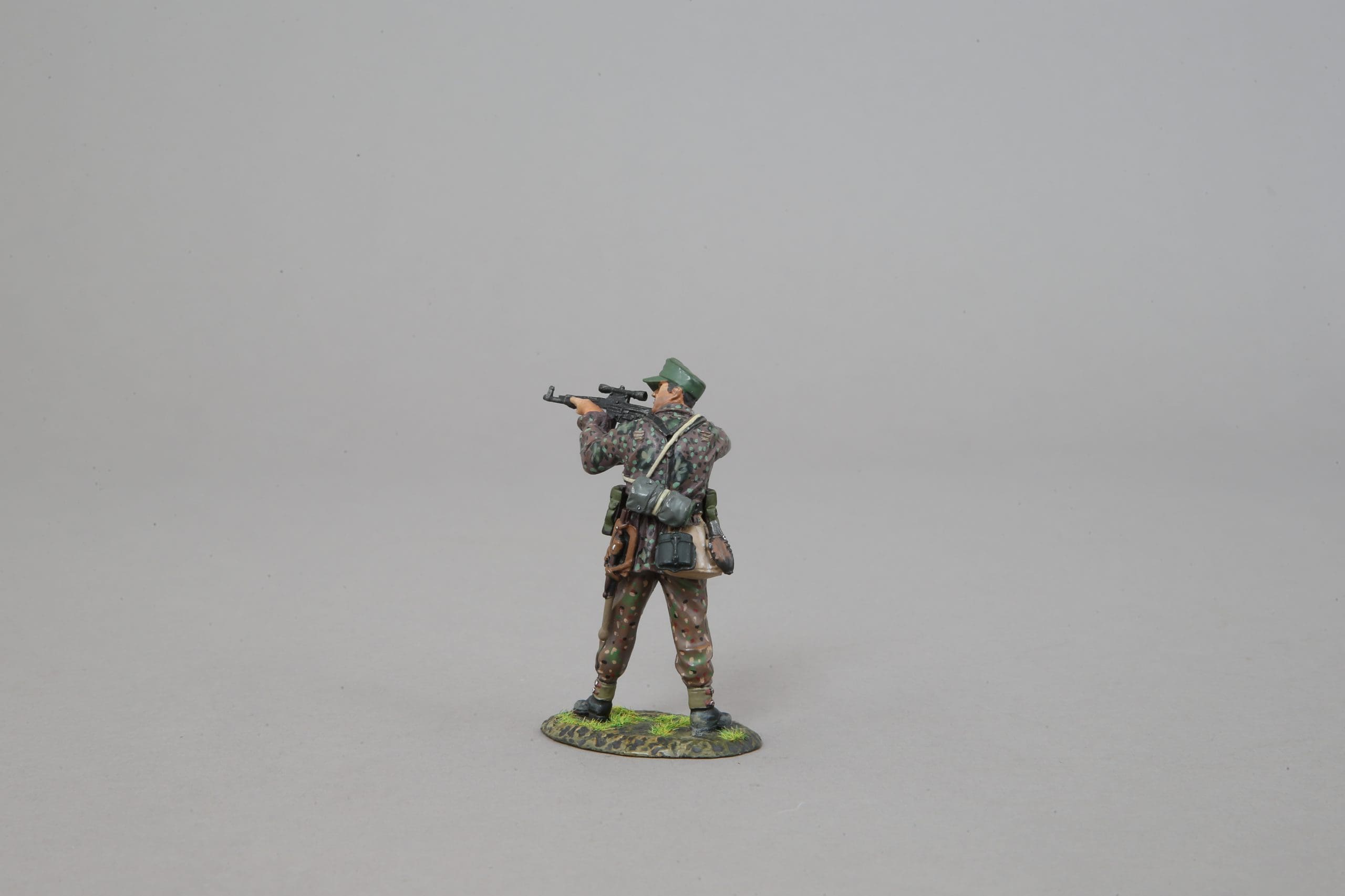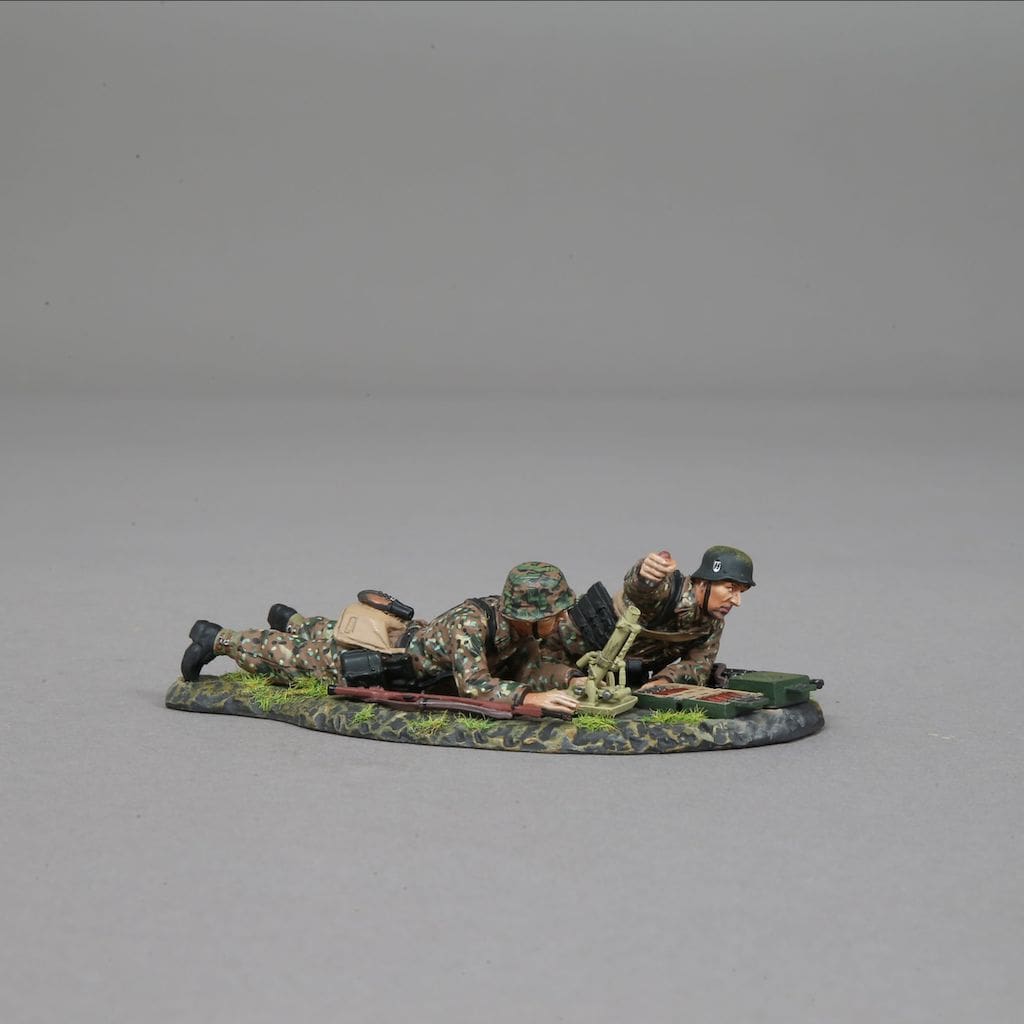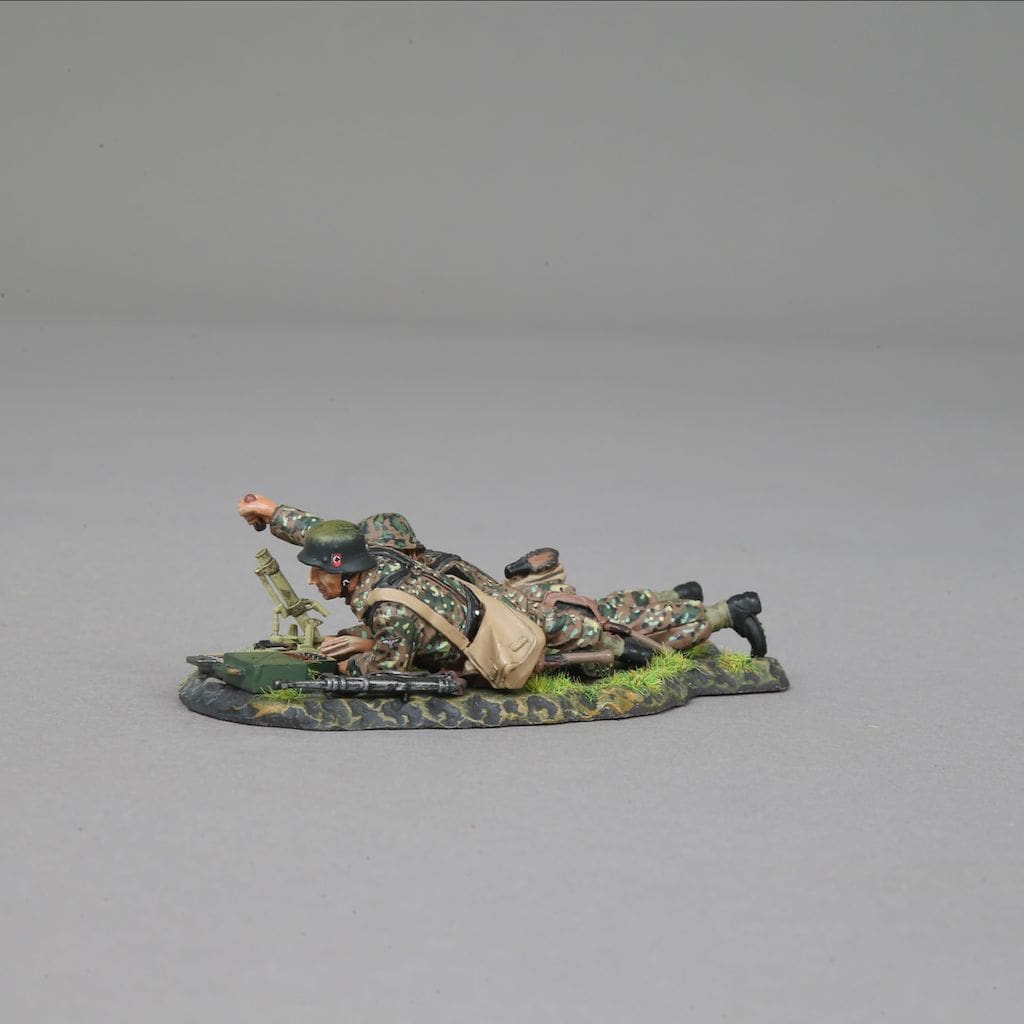- Free shipping available on orders over £100 (UK) £250 (EU) and $300 rest of the world
ACCPACK 119 Marder 2
£290.00
Combat History
The Marder II had a wide and varied combat history. The Marder IIs were used by the Panzerjäger Abteilungen of the Panzer divisions of both the Heer and the Waffen SS, as well as several Luftwaffe units, it was the first armoured vehicle to be used by the Fallschirmjager. Seeing service in all theatres, with the vast majority seeing action on the Eastern front, there were over 300 that took part during the Kursk Campaign. The vehicle saw service in North Africa, Italy and the Western Front. Six were sent to Denmark, one of which was purchased by the Swedes for evaluation and can be seen in the Arsenalen Tank Museum Strängnäs (Sweden). It’s now one of only four surviving vehicles in the world.
The Marder’s limitations were mainly related to survivability. A combination of a high silhouette and open-top fighting compartment made the vehicle vulnerable to indirect artillery fire, aircraft strafing, and grenades. Relatively thin armour made them vulnerable to enemy tanks or infantry. The Marders were not assault vehicles or tank substitutes; the open-top compartment meant operations in crowded areas such as urban environments or other close-combat situations were not an option. They were best employed in defensive or overwatch roles. Despite their Achillies Heel, they were more effective than the towed antitank guns that they replaced and well liked by their crews.
Our Marder is supplied without crew figures, these are available on our website in limited numbers whilst stocks last.
Out of stock
Description
Description
Combat History
The Marder II had a wide and varied combat history. The Marder IIs were used by the Panzerjäger Abteilungen of the Panzer divisions of both the Heer and the Waffen SS, as well as several Luftwaffe units, it was the first armoured vehicle to be used by the Fallschirmjager. Seeing service in all theatres, with the vast majority seeing action on the Eastern front, there were over 300 that took part during the Kursk Campaign. The vehicle saw service in North Africa, Italy and the Western Front. Six were sent to Denmark, one of which was purchased by the Swedes for evaluation and can be seen in the Arsenalen Tank Museum Strängnäs (Sweden). It’s now one of only four surviving vehicles in the world.
The Marder’s limitations were mainly related to survivability. A combination of a high silhouette and open-top fighting compartment made the vehicle vulnerable to indirect artillery fire, aircraft strafing, and grenades. Relatively thin armour made them vulnerable to enemy tanks or infantry. The Marders were not assault vehicles or tank substitutes; the open-top compartment meant operations in crowded areas such as urban environments or other close-combat situations were not an option. They were best employed in defensive or overwatch roles. Despite their Achillies Heel, they were more effective than the towed antitank guns that they replaced and well liked by their crews.
Please note the crew figures are not included and can be bought separately via our website in limited numbers whilst stocks last.







